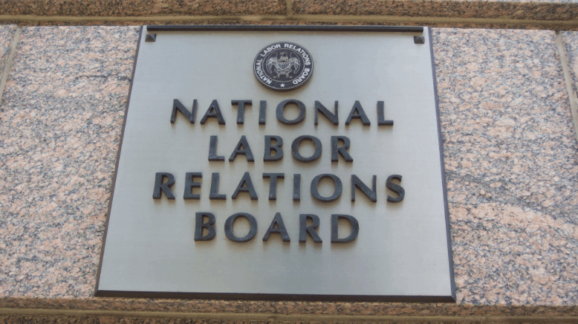Schumer moves to lock in place Democrat-majority labor board

Senate Democratic leader Chuck Schumer is attempting to ensure that the Democrats retain control of the National Labor Relations Board, the main federal labor law enforcement agency, until at least 2026 by extending the term of its current chairwoman, Lauren McFerran. A Senate floor vote on McFerran’s nomination is pending and, while it is possible that Senate Republicans could block it, it is not clear if enough will show up for the vote to do that. The vote may happen on Wednesday. This matters because the current board has been an aggressive advocate for unionization.
The NLRB is an independent agency whose five members are appointed by the president, confirmed by the Senate, and who serve staggered five-year terms. Currently the Board is 3-1 Democratic, with one open seat. McFerran, whose original term concludes on Monday, was formally re-nominated by the Biden administration along with a Republican management-side lawyer named Joshua Ditelberg. Approving both would give the Board a 3-2 Democratic majority. By tradition, the president reserves two spots for the other party. This isn’t much of a concession, though. The Board operates by simple majority. The minority party members mainly just write dissents on the majority’s decisions.
McFerran’s current NLRB term expires Monday. Extending her term through 2029 would ensure that a Democratic majority remains in place at least until August 2026, when the term of Democrat-appointed Board member, David Prouty, is set to expire. The term of the Board’s lone Republican, Marvin Kaplan, is the next to expire, ending on August 27, 2025. Democrat appointee Gwynne Wilcox’s term expires in August 2028. The fifth seat, which Ditelberg was nominated for, is currently open.
McFerran is a former staffer for the late Senator Ted Kennedy and has been a staunch voice in favor of using the Board to expand unionization. The NLRB reported a 35 percent increase in union recognition petitions in the first half of 2024. That was up from a 16 percent increase the previous year. The Board attributed the increase to its 2023 Cemex decision, which altered the rules for union representation petitions. Under Cemex, if a union alleges an unfair practice by management prior to a workplace organizing election, the Board has the option of canceling the election and automatically recognizing the union instead. A union could be recognized even if a majority of the workers didn’t favor it. The Board’s current majority views even mildly skeptical comments by management about unions an unfair labor practice. Unsurprisingly, unfair labor practice complaints have increased by 7 percent in 2024.
Under McFerran’s chairmanship, the Board has also attempted to lower the legal standard for the use of preliminary injunctions, a move even liberal Supreme Court justices rejected. The NLRB has also attempted to expand the Joint Employer rule, the legal standard for when one business can be held legally responsible for workplace violations at a second business. The courts also blocked this NLRB effort.
If McFerran’s renomination is blocked and her seat goes empty, that would create a 2-1 Democratic majority on the Board, a functioning quorum in which the remaining Democratic appointees would call the shots. Trump could try to fill the open seats once he takes office but would have to get his picks through a Senate when Democrats would have enough lawmakers to mount a filibuster. Unions would certainly advocate keeping the existing Board as intact as possible.